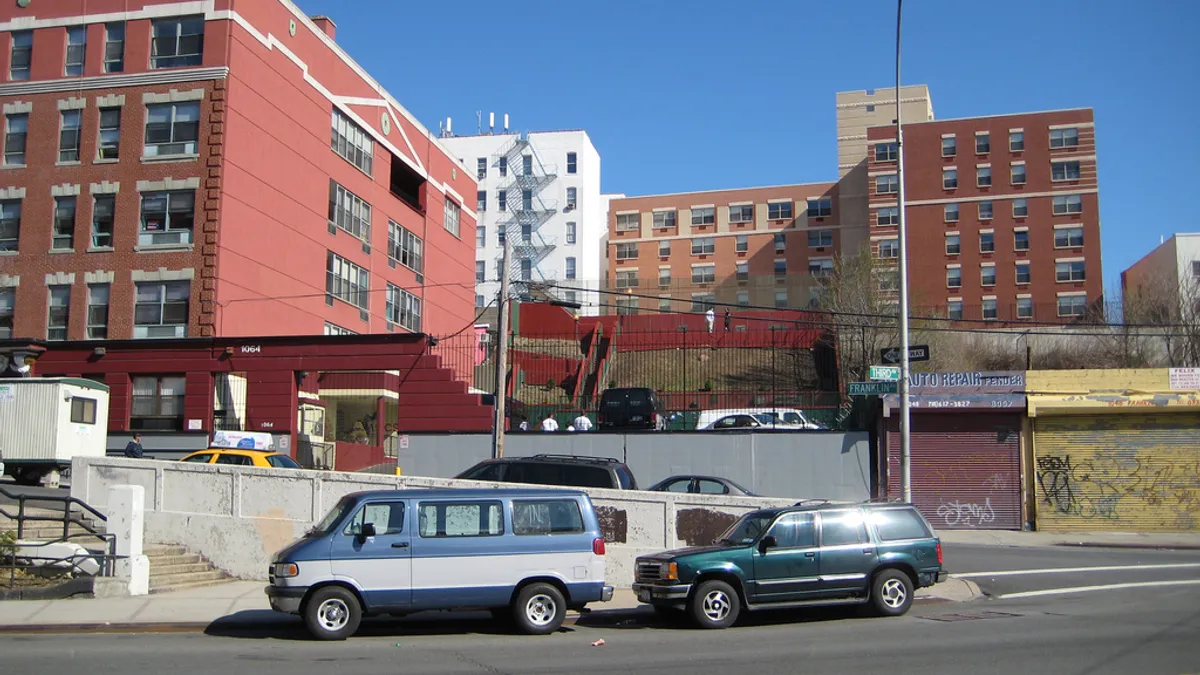Dive Brief:
- Cities must give more thought to ensure innovation does not leave behind the most vulnerable communities, and they must consider race and gender more as they look to become smarter, according to several panelists at last week's Smart Cities New York Conference.
- Traditionally lower-income and majority-minority areas of cities must not be forgotten, especially as private companies come in and provide services including 5G and enhanced broadband internet.
- "When we talk about smart cities, what are we doing to help people on the block or in the borough?" asked Michael Blake, a New York Assemblyman and vice chair of the Democratic National Committee.
Dive Insight:
Reports have said previously that cities must focus on equity when they innovate, including one document last year from the National League of Cities that cautioned of the widening gaps between the rich and the poor and among races, a sentiment shared by panelists at Smart Cities New York. Blake represents the South Bronx in New York City, an area he said is the "urban metropolis of the world." But the area suffers from a past perception of being riddled with crime and urban decay, which may discourage governments and companies from bringing in new innovations, leading to mutual distrust.
To combat risk, all parties have reason to get involved in helping the most vulnerable, including through bettering educational and job training opportunities. Wes Moore, CEO of the poverty-fighting organization Robin Hood Foundation in New York City, said some traditionally poorer neighborhoods have also suffered from inadequate transportation planning and neglect. He gave the example of it taking 90 minutes to travel 3.5 miles from Baltimore’s western neighborhoods to its downtown core. “The truth is we’re dealing with a systemic breakdown,” Moore said. “[The] only way we’re going to deal with a systemic breakdown is a systemic build-up.”
Blake said that he and others are trying to change the perception of the South Bronx, emphasizing its diversity as a strength as well as the five colleges contained within a 30-block radius in that area. "We are creating the atmosphere for success, and that’s how we get the private sector to invest," he said.
And cities in general can innovate with programs that do less to penalize the poor. St. Louis, MO Treasurer Tishaura Jones said the city is exploring a payment plan for parking tickets to prevent costs from becoming too prohibitive, something that echoes the Financial Justice Project in San Francisco. "What can we do as government to be part of the solution, because we are part of the problem," she said.












